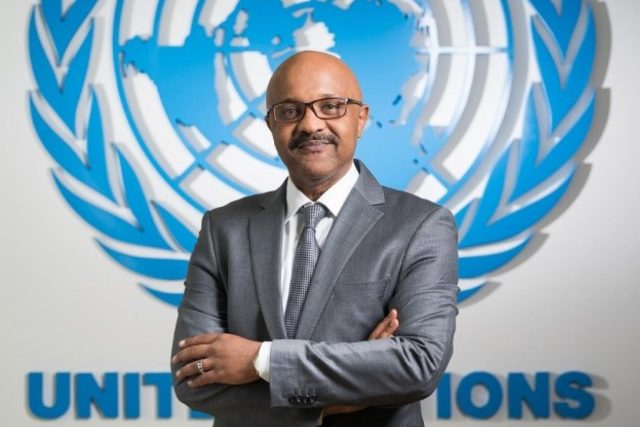Mr Osama Makkawi Khogali Friday took up a new role as the United Nations Children’s Fund’s (UNICEF) representative to Ghana.
This was after receiving accreditation from the Deputy Minister for Foreign Affairs and Regional Integration, Mr Kwaku Ampratwum-Sarpong.
He was the former Representative in Tajikistan.
Mr. Makkawi Khogali joined the UNICEF office in Ghana in June 2023 as the new Country Programme of Cooperation between UNICEF and Government of Ghana and expected to serve until 2027.
“I am honoured to serve as the UNICEF Representative to Ghana. As the first country in the world to ratify the Convention on the Rights of the Child, Ghana has long been a pacesetter in the region when it comes to championing child rights,” he said.
He said as the Government of Ghana and UNICEF embarksled on a new joint Programme of Cooperation, he was hopeful that together UNICEF and the government could continue efforts to ensure that every child and adolescent, particularly the most disadvantaged and excluded was provided with equitable and inclusive opportunities to fulfil their potential.
Prior to assuming the role as Representative to Ghana, Makkawi Khogali held the posts of UNICEF Representative to Tajikistan from 2020 to 2023, in Montenegro form 2017 to 2020 and in Oman form 2013 to 2017.
Mr. Makkawi Khogali was UNICEF Deputy Representative to Iraq from 2009 – 2013, a Regional Emergency Specialist for UNICEF Middle East and North Africa Regional Office form 2006 to 2009 and served as Principal Emergency Coordinator and in other positions with UNICEF Pakistan Office.
Originally from Sudan, Mr. Makkawi Khogali began his career with UNICEF in Sudan from 1992 to 1998.
Mr. Makkawi Khogali also served between 1998 and 2001 as Development and Aid Advisor for the Royal Netherlands Embassy in Sudan.
UNICEF has had presence in Ghana for just over 40 years, consistently applying its expertise to collaborate with the government and other partners to respect, protect and uphold the rights of the child.
With offices in both Accra and Tamale, the sections within the UN child-rights agency include health and nutrition, education, child protection, water sanitation and hygiene, social policy, social protection, supply and procurement, adolescent, gender, youth and innovation, social and behavioral change and advocacy.









![“It’s hard to say goodbye” – Christian Atsu’s wife composes emotional tribute song for him [Video]](https://ghananewss.com/storage/2023/05/Christian-atsu-and-wife-100x75.jpeg)







